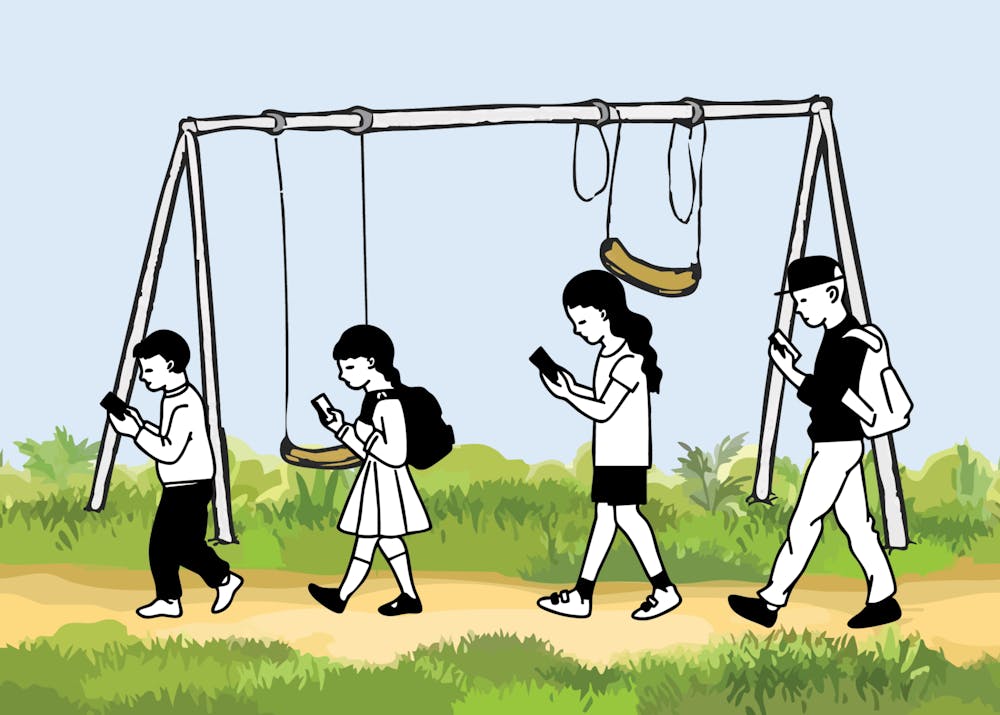Our childhoods are crucial to who we become. They are the most formative years of our lives, during which we learn language and social skills and develop our beliefs and values. We must be supported and cared for during this time.
And yet, our society has fallen short of its duty to protect youth. Children are losing their childhoods because of mistreatment and neglect happening in places meant to benefit them.
Kids are losing their chance to be kids.
The Stop Institutional Child Abuse Act was signed into law by Congress last December. This legislation intends to change how youth residential programs are managed by calling for thorough examinations of youth in these programs, professional training for workers in child protection and care, community-based alternatives and more.
Paris Hilton was a vocal supporter of this act and is a huge children’s rights activist. In a documentary called “This is Paris,” Hilton spoke about her time in the troubled teen industry (TTI) and the abuse she endured at the boarding school Provo Canyon School. During her 11-month stay, Hilton said she was beaten, force-fed medication, watched as she showered, subjected to strip searches and sent to solitary confinement without clothes as punishment.
Since the documentary’s release, she has advocated for protecting youth in TTI. Around the same time, I noticed an uptick in videos about these programs, each with the hashtag #BreakingCodeSilence, a movement created in 2014 to raise awareness about problems in the industry.
TTI is a network of youth residential programs intended to support struggling teenagers. These programs manifest as therapeutic boarding schools, treatment centers, wilderness programs and boot camps. Roughly 120,000-200,000 young teens are funneled into these programs, and about $23 billion of public funds are given annually to TTI.
However, there are numerous reports of physical, emotional and sexual abuse in these places. Physical restraints turn into unnecessary physical punishment, and many assaults are caught on security cameras or recorded in restraint reports. Kids experience food or sleep deprivation, lack of privacy, prolonged isolation and more. There have been more than 350 preventable child deaths documented.
In their videos, people described being awoken and handcuffed by strangers, while their parents watched. They described being transported to an unknown location where they stayed for several months. They described doing physical labor for hours on end with little food or water.
I learned more when “The Program: Cons, Cults, and Kidnapping” was released on Netflix last year. The documentary specifically focuses on one of TTI’s behavior modification facilities, the Academy at Ivy Ridge, which was disguised as a boarding school. The film was created by Katherine Kubler, a former attendee, and followed her and other former attendees as they shared their experiences in the program.
There is a quote by a journalist interviewed, Thomas Houlahan: “The abuse of a child is the business of anyone who knows about it.” At the end, Kubler restates this and sends the audience off with one final message: “Now you know.”
Utah is known as the ideal place for these programs, but there are a few in Ohio, such as OhioGuidestone, where a teen died in 2014 after being physically restrained by a staff member. Since there is a lack of local, state and federal laws governing these facilities, the abuse can go unnoticed.
Enjoy what you're reading?
Signup for our newsletter
And it’s not just TTI. The foster care system has issues, too, including placement instability, a shortage of foster homes, high rates of abuse or neglect within the system and more.
A 2019 lawsuit filed against the state of West Virginia accused it of failing to protect children in its foster care system. Multiple activism groups and local attorneys filed the suit, alleging the state put children in unsafe homes and overworked Child Protective Services workers.
Similar issues arise at other places where kids spend lots of time.
The education system has a long list of problems, including low test scores, teacher shortages and book bans. We can’t ignore the large number of school shootings in the past few years. And now, federal immigration agencies can make arrests at schools.
Children are the most vulnerable population. Failure to support them when they’re young could result in numerous problems when they enter adulthood, including trust issues, struggling to make genuine connections with others and feelings of isolation.
Our current generation of youth will one day run the world. Don’t we want them to be ready?
I’m not saying every troubled teen program, foster home or school is dangerous. I’m not saying there’s a single solution to all these problems, but I do believe our society and government have failed to adjust how we protect children as our world changes. We can do more.
We can enforce stricter gun laws. We can enforce more regular check-ins on youth programs, similar to restaurant health inspectors. We can encourage parents to be a little more involved with what their children see online and how often they use technology at their age.
It’s all easier said than done. But every small step helps.
With people like Hilton and Kubler fighting for transparency and accountability, I hope this brings an era of change in our society. I hope the proper people are held accountable. I hope for a safer future for our children.
Taylor Powers is a sophomore double majoring in journalism and media and communication. She is the assistant opinion editor for The Student and edits for The Miami Student Magazine. She’s also a PR chair for Miami Dance Corps.




